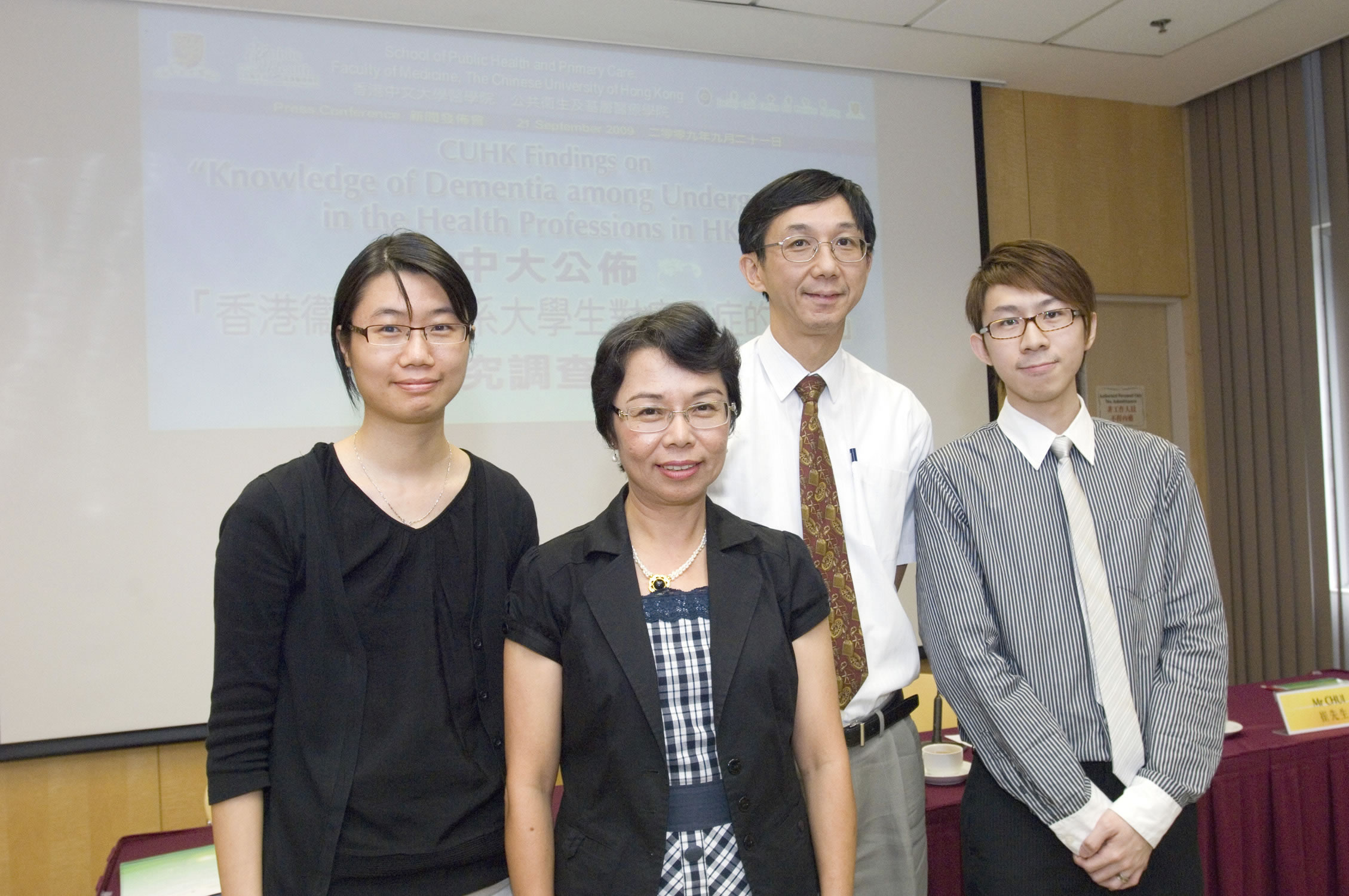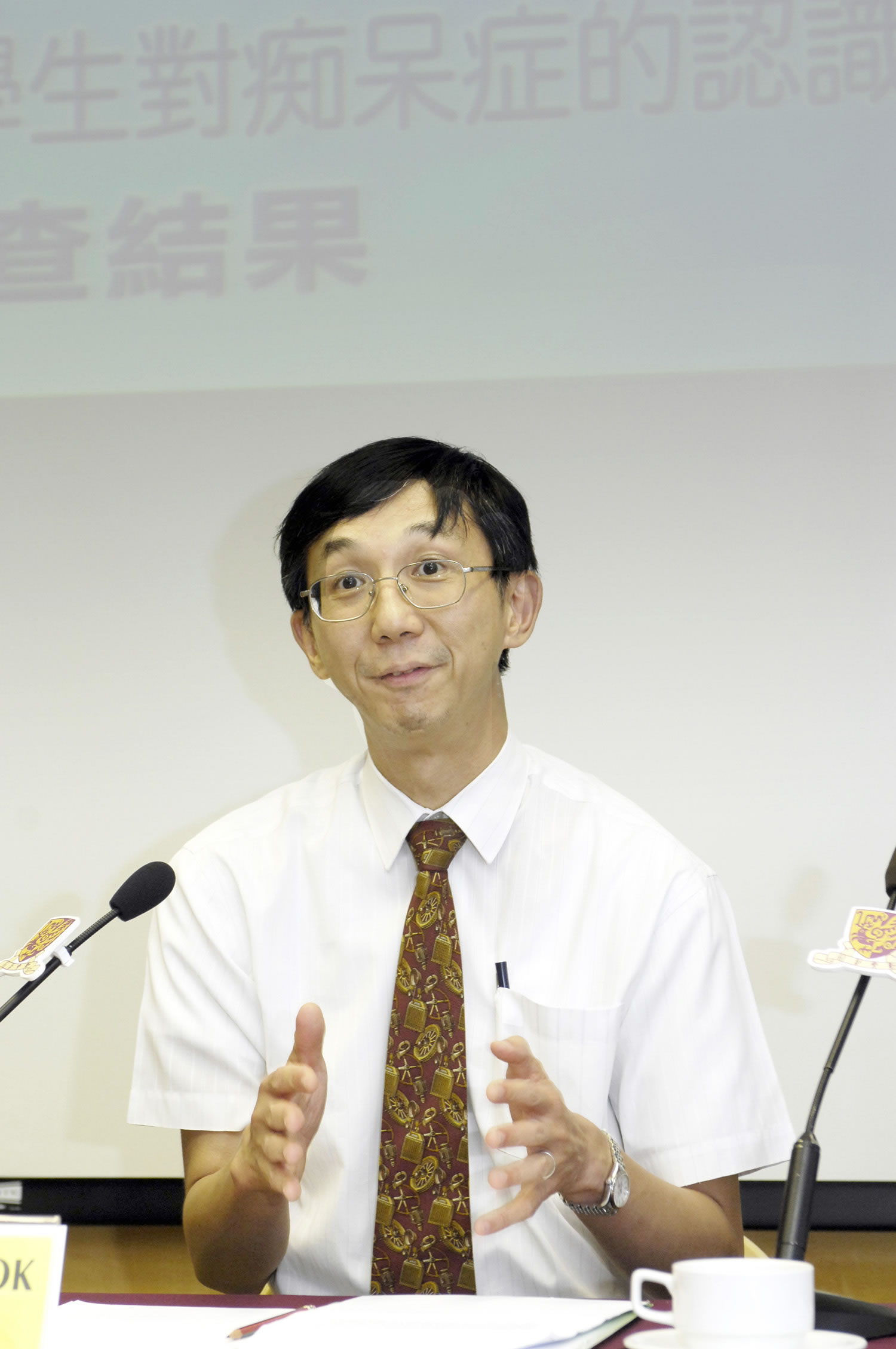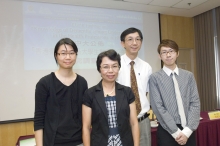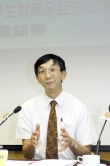CUHK
News Centre
CUHK Survey Reveals Knowledge of Dementia among Health and Social Care Undergraduates in Hong Kong
World Alzheimer's Day falls on 21 September each year. It aims to raise awareness about Alzheimer's disease (AD) and dementia. Dementia has become a public health challenge for healthcare and social welfare systems. According to a study, it is estimated that approximately 10% of those aged 70 or above in Hong Kong have symptoms of dementia. As the population is aging and the prevalence of dementia is increasing, it is crucial that health and social care students are equipped with adequate dementia knowledge before serving the community. As such, the School of Public Health and Primary Care at The Chinese University of Hong Kong (CUHK) and the Jockey Club Centre for Positive Ageing have jointly conducted a survey to evaluate the level of dementia knowledge among undergraduates in the health and social care professions, and their competence in working with dementia sufferers.
Methods
The survey was conducted between April and June 2009. A questionnaire consisting of the Alzheimer’s Disease Knowledge test (ADK) and a modified General Self-Efficacy Scale (GSE) was used to collect data.
321 final year undergraduates from 4 different health and social care disciplines (including medical, occupational therapy, nursing and social work) were approached. 221 questionnaires were returned on-site or by mail, yielding an overall response rate of 69%. The participants included 144 females and 73 males (4 did not disclose their gender), with an age range between 20 and 35 (Mean age = 23).
Findings
(I) Knowledge of Dementia
1. The overall ADK score was 7.52 out of 20 (38%). Medical students attained the highest score of 11.74 (59%), followed by the occupational therapy students and the nursing students who scored 9.78 (49%) and 9.67 (48%) respectively. The social work students had the lowest score of 5.04 (25%). (See Table 1)
2. On the prevalence rate of dementia, nearly half (46%) of the students knew that it is around 10% in persons over 70. 67% were aware that the prevalence of AD in the general population increases in proportion to the population over 65 in Hong Kong. Regarding the etiology, 55% knew that persons with a close relative who has AD have a higher risk of being afflicted.
3. However, students knew little about the treatment of dementia. More than half (65%) of the students did not know that dementia drugs cannot prevent further decline, suggesting that the majority had overestimated the therapeutic effect of pharmacological treatment for dementia.
4. In the areas of symptoms and diagnosis, medical students outperformed students from the other 3 disciplines. 63% of the medical students recognized that symptoms of depression, delirium and stroke sometimes resemble AD, whereas over 70% of the students from the other 3 disciplines did not know that symptoms of these illnesses are similar. Besides, 85% of the medical students knew that autopsy is required to confirm AD, whereas nursing (87%), social work (77%) and occupational therapy students (69%) improperly selected mental status testing or CT scan as the required procedure.
5. In managing the behavioural problems of dementia patients, 51% of the occupational therapy and 41% of the medical students recognized that wandering problem is best managed by using lockable doors. However, most of the nursing (53%) and social work (34%) students wrongly thought that expressing concerns to patients can solve the problem. Also, most of the nursing (100%), medical (90%) and occupational therapy (89%) students knew that the correct way of managing patients with difficulties in performing self-care activities is to assist them with the activity so that they can remain as independent as possible. However, only one-third of the social work students (33%) knew the answer.
6. Social work students also showed weak knowledge in accessing community resources. Only 27% of the social work students knew that patients diagnosed with AD are eligible to apply for Disability Allowance, while 24% were uncertain.
(II) Self-Efficacy
Self-efficacy is the belief that one is capable of performing in a certain manner to attain certain goals. The GSE and dementia-care-giving self-efficacy score (DSE) in nursing, occupational therapy and medicine groups were fairly homogeneous. However, the social work students’ DSE (23.7) was significantly lower than their GSE (27.1). This reveals that the social work students are less competent in providing care to individuals with dementia. (See Table 2) (III) Class Hours 44% of the occupational therapy and medical students reported that the class hours covering dementia topic in their programmes were between 6-10 hours. Over 50% (53%) of the nursing students said the class hours were between 1-5 hours. The majority (75%) of the social work students had the class hours from 0-5 hours. (See Table 3)
It is shown that correlations among class hours on dementia topics, students’ knowledge of dementia, and their competence in dementia care-giving are significant. Thus, more education can improve students’ knowledge and competence.
Conclusion and Recommendations
In summary, the overall ADK score of undergraduates in health and social care professions was low, showing a general lack of dementia knowledge, especially in the areas of treatment, symptoms and diagnosis, behavioural management, and community resources. Medical students are better at symptoms and diagnosis than at behavioural management, whereas the reverse is true for nursing and occupational therapy students.
It is of concern that the social work students attained the lowest DSE and had the least hours of dementia education. Future social workers are likely to provide care for older people with dementia. It is important for them to receive adequate training in professional education. As it is shown that DSE, class hours and level of dementia knowledge are all significantly correlated, the survey suggests that social work programmes should attempt to devote more hours to teaching dementia-related knowledge. Greater exposure to relevant elderly services via placement and internship should also be encouraged. This will not only improve their dementia knowledge, but also develop the students’ competence in delivering dementia care.
Furthermore, organizations offering dementia-related services can consider providing on-the-job training for fresh graduates and new staff. This would ensure service standard, enabling dementia sufferers to receive treatment plans effectively and have early access to services.
(From left) Ms April Yip, Research Officer of Jockey Club Centre for Positive Ageing; Dr Alice Chong, Associate Dean, College of Humanities & Social Sciences and Associate Professor, Department of Applied Social Studies, City University of Hong Kong; Professor Timothy Kwok, Director, Jockey Club Centre for Positive Ageing; and Mr Chui, Social Worker







